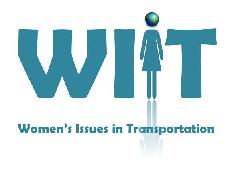 |
5th International Conference on Women's Issues in Transportation - Bridging the Gap
14-16 Apr 2014 Paris - La Défense (France)
|
Themes and topics > PillarsEach pillar will be organized according to 3 topics:
1) Transport policy, transport patterns and mobility
Chair: Maryvonne Plessis-Fraissard (MPF Consult) This Pillar refers to the gender impact of transport policies and regulatory frameworks, as they frame the sector research, investment and service delivery. Understanding transport patterns and mobility is fundamental to the creation of evidence-based, gender-sensitive policies. Women’s socio economic conditions, mobility patterns and special needs vary widely across and within countries. Appropriate knowledge, monitoring and evaluation, incentives, regulations, and remedies are core elements of gender-sensitive transport policies, equally serving women and men. Ideally, policies should be designed to provide an enabling environment for a fair share of the mobility benefit and of the sector wealth participation between women and men. The design and implementation of successful policies would benefit greatly from sharing the experiences of countries across the globe. 2) Health, Safety & SecurityChair: Marie-Axelle Granié (IFSTTAR) Key question of this pillar relates to gendering of transport safety, health and security issues, policy making and gaps between low, medium and high income countries. Papers are expected on influence of gender on type of crashes women and men are involved in, type of injuries they are confronted with, consequences of transport on their health and well-being, attitudes and behaviors they have concerning transport safety and security. On these different topics, papers could also analyze if and how can policies concerning safety, security and health take gender differences and specificities into account. Furthermore, papers are expected on cultural, economic and geographical effects on gender safety, security and health on transportation. In particular, papers dealing with transfer possibilities and issues of best practices concerning gender equalities in safety, security and health in transportation from one country to another are welcome. 3) SustainabilityChair: Owen Waygood (Université Laval) The three pillars of sustainability relate to economic, societal, and environmental considerations. Further, while one country may be working to make their transportation more environmentally sustainable, another may need to prioritize economic or social sustainability. As well, changes to the built environment (land-use and transportation infrastructure) to improve one aspect may negatively affect another. Within those three areas is an enormous set of issues that could affect the genders differently; this research pillar requests work on such important topics. 4) Transportation impacts on careers and careers impacts on transportation
|
| Online user: 1 | RSS Feed |

|
